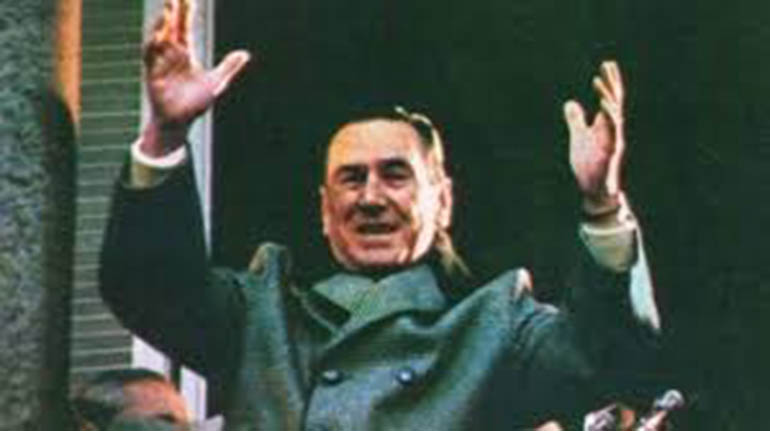Argentina: A divided legacy marks 50 years since Peron's death [View all]
Monday marks 50 years since one of the key moments in Argentine history: the death of populist leader Juan Domingo Perón - just a year after his return to Argentina after an 18-year exile.
There was Argentina before Perón, and Argentina after it.
Of all the dividing lines that could be drawn in this polarized country of 46 million, this is one of the deepest — and it has stood the test of time.
In the 78 years since Perón, an army colonel with middle-class roots born in 1895, was first elected president of Argentina, the populist movement he created continues to be a dominant political force in the country.
Perón used his 1943-45 tenure as labor secretary and his 1946-55 presidency to improve wages and conditions and enshrine workers’ and women’s rights - while embarking on massive public works projects and nationalizing aging railroads and utilities.
Buoyed by the popularity and activism of his ill-fated second wife Evita, he branded his system as “justicialismo,” or social justice - which he described as a “third way” between “insatiably selfish capitalism and inhuman communism.”
On broken wings
But Perón's repression of political dissent earned him enemies on both sides of the political spectrum - and his reforms forged powerful enemies in the military, landowning elites, and the Roman Catholic Church.
Following a violent coup in 1955 - during which over 300 were killed in an air raid - Peronists gradually regrouped as uneasy allies: culturally right-wing trade unionists; and young, often radicalized leftist supporters.
By the time Perón returned from exile in 1973, a state of violent confrontation erupted between his left- and right-wing factions.
After his death in 1974, political violence intensified - culminating in a fascist (and anti-Peronist) military dictatorship that ruled from 1976 to 1983. Thousands of people, many of them left-wing Peronist dissidents and student activists, were murdered or disappeared - while the economy and real wages collapsed.
Since democracy returned in late 1983, Peronists - both right- and left-wing - have held office for 28 of the last 40 years.
The 28 years Peronists were in office saw GDP grow by 177%; the 12 years they were out of office, have seen GDP decline by 27%.
At: https://www.aljazeera.com/news/2023/6/20/a-divided-legacy-marks-50-years-since-perons-return-to-argentina

Argentine populist leader Juan Perón greets supporters at a June 12, 1974, rally - his last.
Perón's pro-labor, statist policies helped reshape Argentina's then-agrarian economy and caste-oriented society - helping create the largest proportional middle class in Latin America, as well as the region's highest-paid, best-educated working class.
He also included women, Jews, Arabs, and the dark-skinned for the first time in Argentine politics - all of whom had been largely, and sometimes violently, excluded.
But he failed to reverse Argentina's relative decline - which began in World War I - and his authoritarianism stoked deep divisions between his mostly working-class (and in recent decades, left-wing) supporters, and his mainly middle- and upper-class (largely right-wing) opponents.
The election last November of another authoritarian - the rabidly anti-Peronist, far-right fast-talker Javier Milei - was hailed by right-wing media as “the defeat of Peronism.”
But the subsequent “Mileise” has, according to some polls, given many voters reason to give Peronism a second look.
